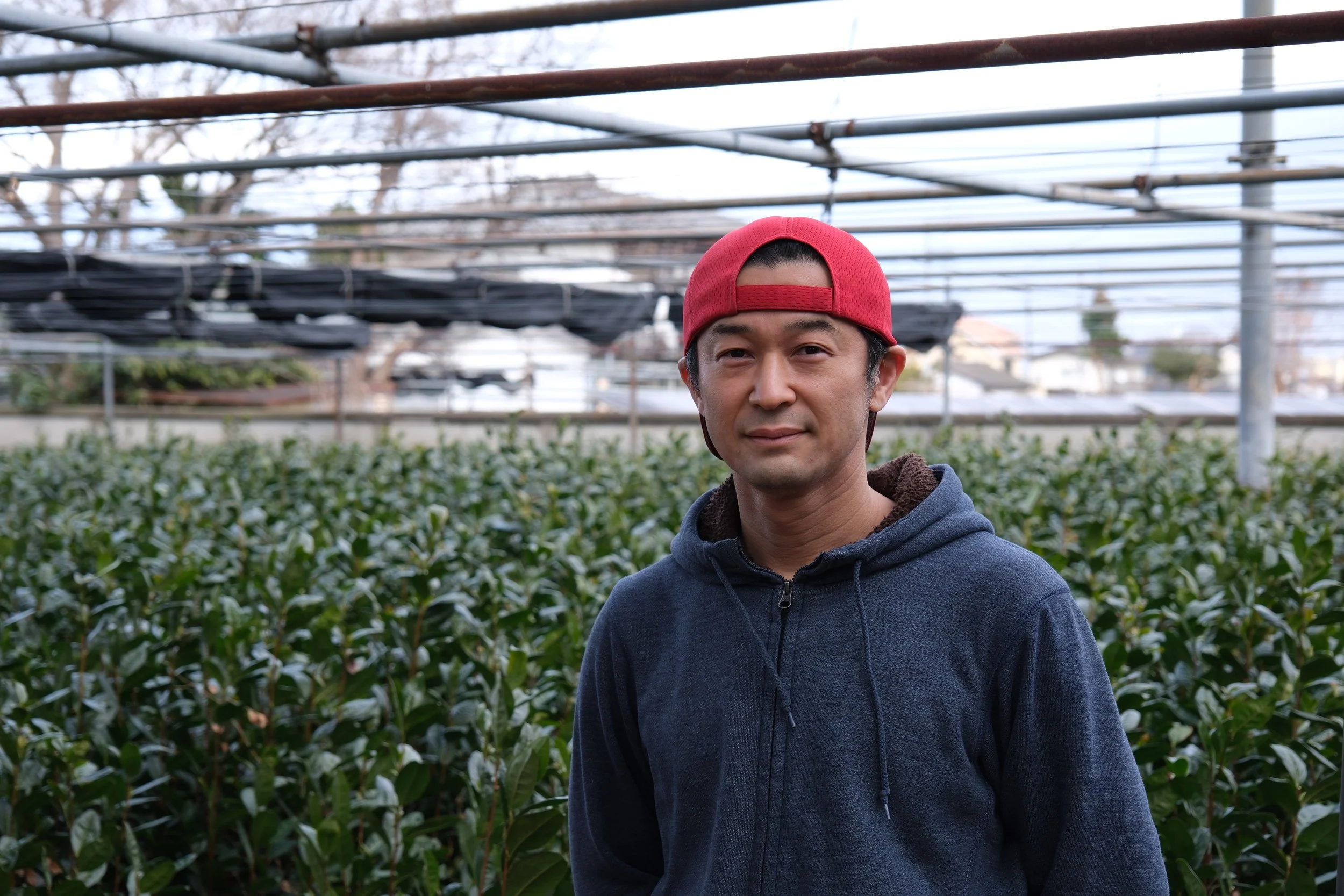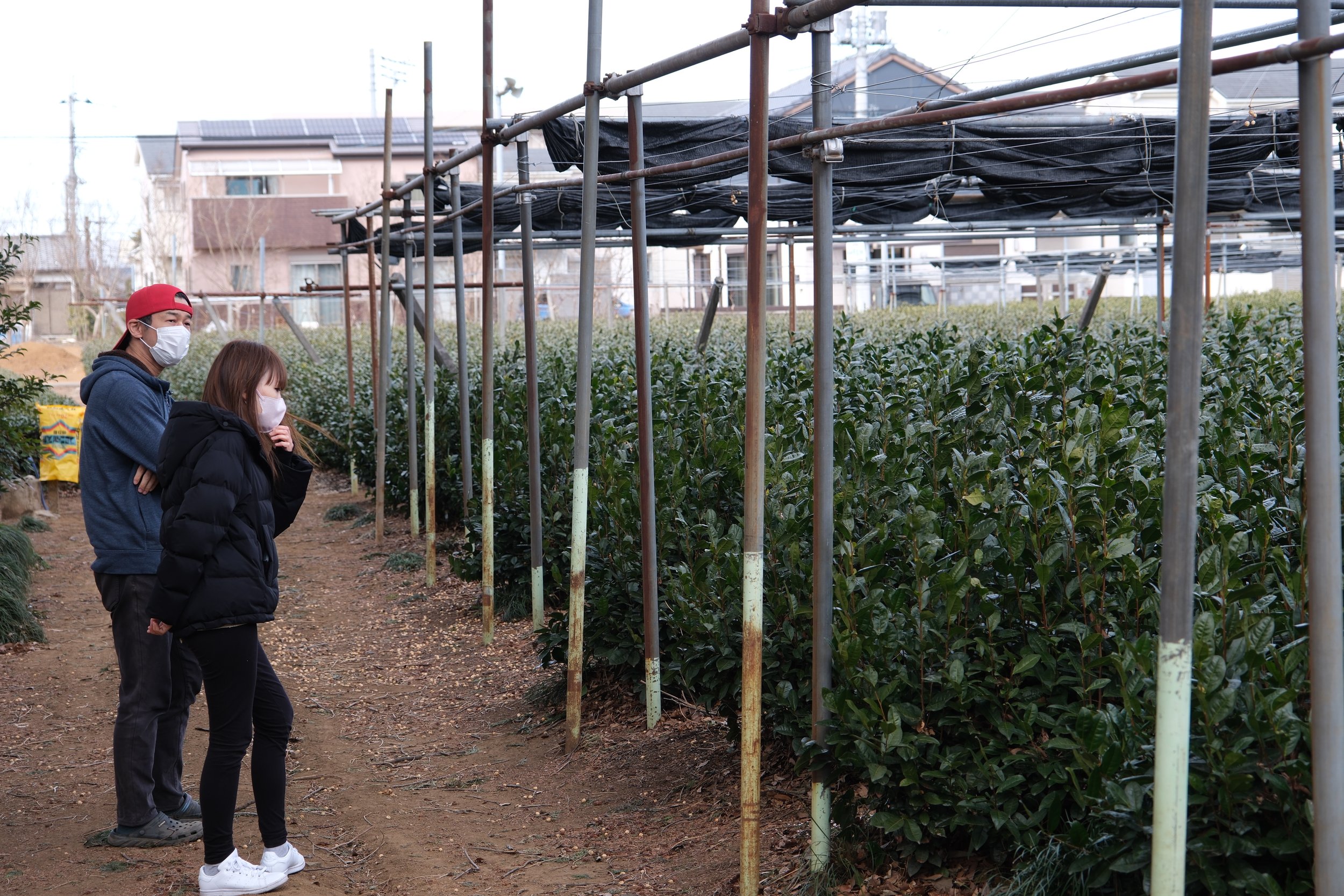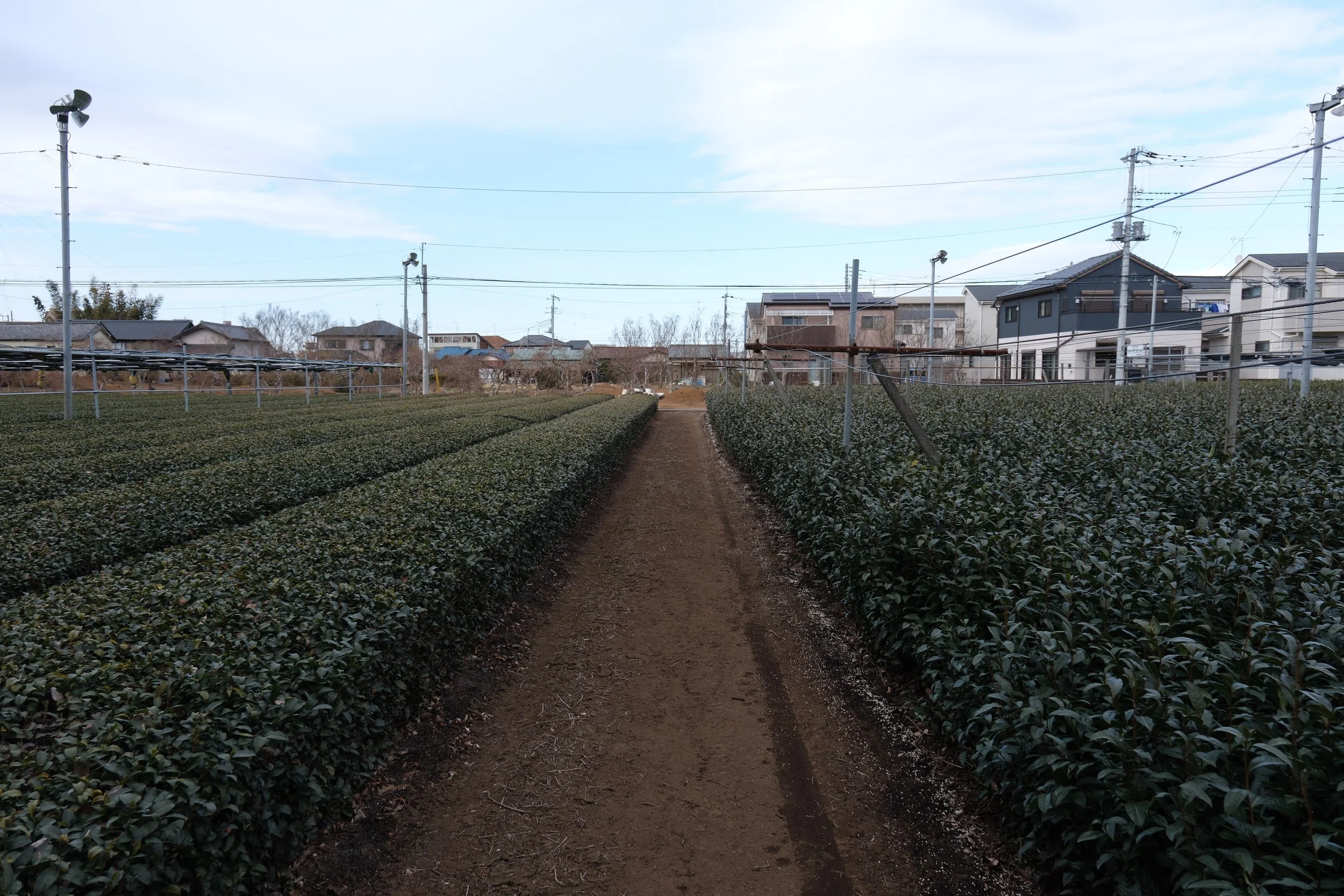Okutomi san’s Wakoucha
Wakoucha is Japanese black tea, with ‘Wa’ meaning Japanese and ‘koucha’ meaning red tea – referring to the colour of the liquid after brewing which is a warm red tone. Japan first started production in the Meiji era with the help of a Chinese tea specialist, when the government saw that a lot of Europeans and Americans were drinking black tea rather than green tea. The effort was unsuccessful, but in 1876 Tada Motokichi went to India to learn more about Darjeeling and Assam production, gaining insights on production methods and machinery, taking some seeds back to Japan. Those seeds gave birth to some wakoucha cultivars (such as Benihomare). Currently there are only about 300 farmers producing Japanese black tea.
This specific wakoucha is grown and processed by Okutomi Masahiro, a 15th generation tea farmer in Sayama, Saitama prefecture. We have been working with him for a number of years and are big fans of his Temomicha, Ichou Sencha, and his famous-by-now ‘The Bone’ Houjicha! We have also used his wakoucha that has been blended with stawberry pieces in his Ichigo Koucha, and apricot pieces in his Anzu Koucha, so look out for those too!
Please experiment when brewing this tea to find your personal preference. A good starting point is listed below.
Hot brewing guide:
Wakoucha 3 grams
Water 110ml
First infusion 75°C for 60sec
Second infusion 85°C for 30sec
Third infusion 85°C for 90sec
To pour over ice:
Wakoucha 4 grams
Water 120-150ml
One infusion only 85°C for 90sec
Storage:
Store in the fridge or at room temperature in a cool dry place, and avoid exposure to sunlight and air - both of these will degrade your tea. Best consumed within 3-4 months from when it is first opened, but wakoucha is not as sensitive as sencha or matcha so this is not a strict time limit.



